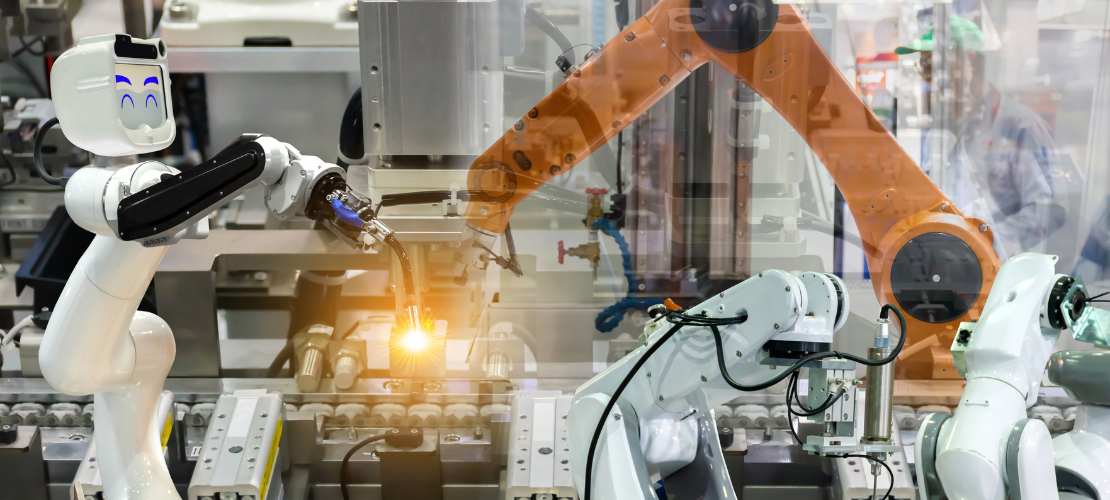Apprenticeship Options and Course overview
| Key course details | |
|---|---|
| Start date | September |
| Tuition fees | £9000 per annum (funding available for eligible students, see Tuition Fees and Funding below) |
| Location |
Primarily Coleg Cambria, Deeside |
| Programme Director | |
Apprenticeship Options
Foundation Degree – This is a 2 year programme. The final qualification will be a Foundation Degree in Advanced Manufacturing Engineering.
BEng Degree Apprenticeship – This is the full 3 year programme. The final qualification will be a BEng in Advanced Manufacturing Engineering.
Course Overview
The Degree Apprenticeship in Advanced Manufacturing Engineering is a broad-based curriculum which covers aspects of mechanical and electrical engineering, engineering design, materials, manufacturing methods, control systems, numerical analysis and modelling. In the final year, this extends into more advanced topics of automation and robotics, systems engineering, simulation and advanced materials.
The programme is designed for learners employed within the engineering sector, as companies are increasingly looking to take on well-qualified school-leavers and direct them through an embedded degree apprenticeship scheme rather than taking on graduates. The BEng Degree Apprenticeship is an attractive route to a degree level qualification for existing employees, or those who have followed a vocational qualification route within the FE sector, as the qualification can be obtained alongside industrial experience, with lower levels of student debt.
The Swansea University awarded BEng degree is delivered as a partnership between Swansea University, Coleg Cambria and the employer companies. The degrees are awarded by Swansea University.

